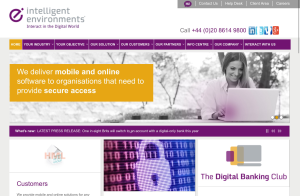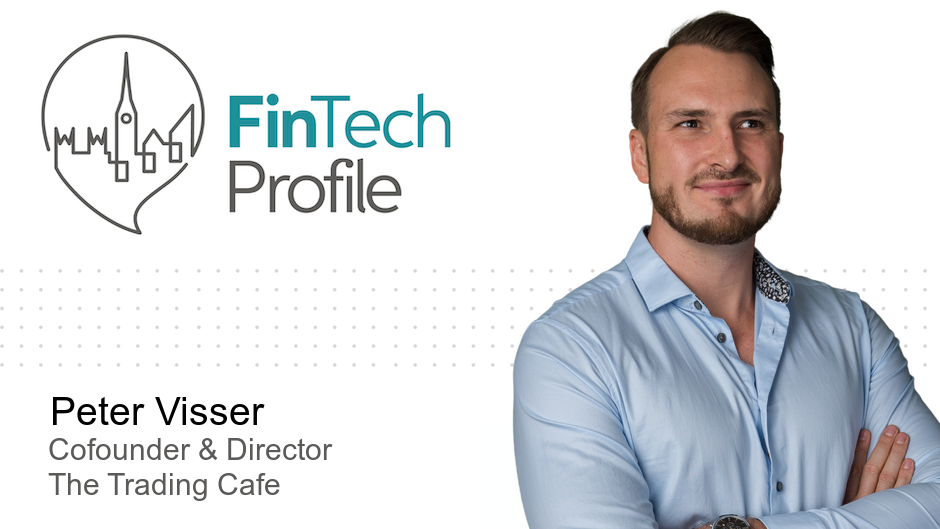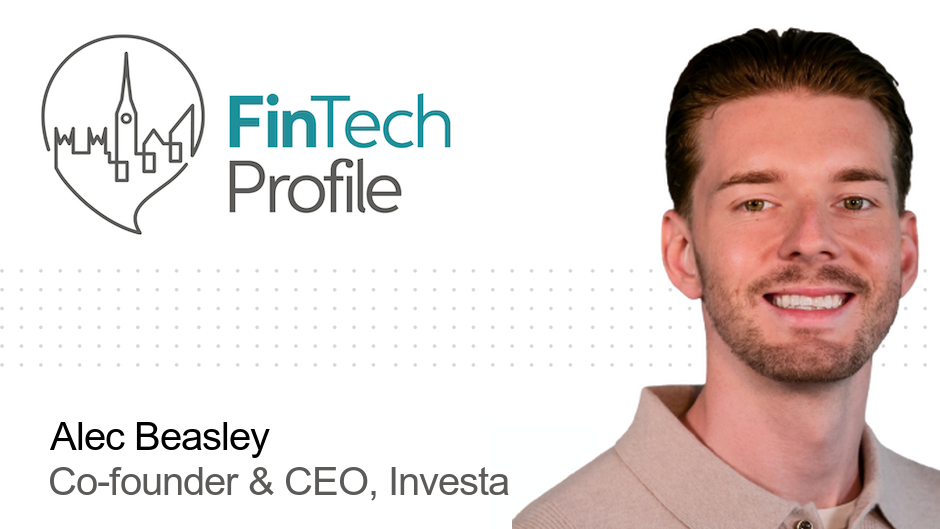David Webber of Intelligent Environments

Today’s profile is from David Webber of Intelligent Environments; an international provider of innovative mobile and online solutions for financial service organisations. Earlier this week, they launched their latest innovation, Emoji Passcode, the world’s first emoji-only passcode which enables consumers to log into their banks using four emoji characters, instead of traditional PINs or passwords. Take a look at this clip of the technology in action here.
David is the Managing Director of the company, let’s find out more about them below.
Our questions are in bold.
—–
Who are you and what’s your background?
David Webber. I trained as a chartered accountant. After working for PWC, I moved into industry, working first as a financial controller for Shanks Group, a waste management business, and then as part of the senior management team for Lynx, a quoted software and services group.
I was fortuitous in becoming managing director of a rapidly growing software subsidiary business of Lynx whilst in my early thirties and learned a huge amount about large project execution, product marketing and managing complex sales cycles. These became important learnings for my career to date.

Intelligent Environments.
I joined Intelligent Environments, a digital financial software company, in 2012. I was attracted to the company because of its excellent track record in FinTech. It was already a leader in credit card web servicing and had nascent capability in the mobile app arena, as well as developing the first UK mobile wallet for 02.
Before I joined, the company had already been in existence for 15 years. While it had ridden successes and challenges, it had never been on a sustained growth trajectory, something we all believed it could achieve. I had previous experience in delivering growth within software product companies and was looking forward to doing the same at Intelligent Environments.
What is your job title and what are your general responsibilities?
I am managing director. Quite simply, I am in charge of leading the team in our expansion of the business.
As mentioned, when I joined Intelligent Environments, the company had stayed the same size for several years. Last year, the business enjoyed a record 35% growth.
My focus over the past three years has been to leverage upcoming developments in the market. We have done this by creating a new product, Interact®, now deployed in many organisations.
We have also invested more in marketing. For example, we launched The Digital Banking Club, a financial services community portal, which now has more than 4,000 members and provides news, blogs, webinars, as well as live debates.
Can you give us an overview of your business?
We help companies engage with their customers in the digital financial services world by providing them with mobile and online capability through our product Interact®.
Typically our customers have a number of back-end solutions to consolidate so their customers can use different channels seamlessly, anytime and anyplace.
Our platform, Interact® addresses this. It enables secure financial applications, engagement, transaction and servicing across all digital channels. This is a different approach to that of our competitors, who tend to focus on individual channels or just provide a tool set rather than a product.
As well as mobile, PCs and tablets, Interact® can and will support other form factors, as and when they proliferate. For example, last year we developed the first digital banking app for the Pebble Smartwatch and Google Glass.
Interact® also supports various product types, from savings accounts, to store cards, to car finance management and can be deployed in different languages, including English, German, Dutch and French.
Who are your target customers? What’s your revenue model?
Our customers come from a broad range of sectors including cards, commercial banking, consumer finance, payments, private banking, mutual organisations, retail banking, wealth management and telcos.
Over the past two years, our focus has shifted from primarily the credit card space to other financial assets as well. We are also beginning to service new verticals, such as the motor finance industry. One thing our clients all have in common is the need to help their end user customer securely engage with personal and confidential financial information.
Our implementation charges are very much tailored to the individual client and we will charge whatever is necessary to implement the solution. We also conduct a shared risk model. As a customer’s volume grows, we make a charge for every successful product application for every active live account. Typically our customers contract for a five year term.

If you had a magic wand, what one thing would you change in the banking and/or FinTech sector?
The speed of decision making. It amazes me that in such a fast-paced, digitally focussed market place, buying processes are so slow and time-consuming. The quicker an organisation can decide whether or not to do something, the quicker they can innovate, and the quicker they can improve customer service.
What is your message for the larger players in the Finance industry?
In order to compete with new players in the market, providers have to streamline the solutions they offer to customers, removing business silos.
For example, banking customers can check their current accounts or make a transfer on an easy to use, intuitive app. However, the moment they need to do something more complicated such as make a request or change address or contact details, they are sent to a call centre, prompted to fill in a customer service form, or even asked to post a letter. This is completely at odds with the experience they have in their everyday life from other providers.
Some new entrants are getting this right from day one, giving customers real control.
What phone are you carrying and why?
I’ve been an Apple man from day one. I currently have the iPhone 6 and I absolutely love it. I particularly like that I can unlock it with my thumb, meaning my children can’t get in and change my screen picture or something equally irritating.
Where do you get your industry news from?
I am a prolific consumer of information. My daily commute is four hours long, which I fill by reading as much as possible. I’m still a bit old school and my bible is The Daily Telegraph, which I have read every day for many years. In terms of trade media, I subscribe to Credit Today and Banking Technology and I also browse Finextra daily.
Can you list 3 people you rate from the FinTech sector that we should be following on Twitter?
I have to confess, I don’t tweet and I don’t follow. As I said, I’m old school and I simply don’t have the inclination. I do however use LinkedIn, because of the high propensity of useful business articles I can find on there.
What’s the best FinTech product or service you’ve seen recently?
My daughter is currently at University in Spain. She has a Caxton pre-paid card, which has a terrific app. I can log into it to see how much she is spending and on what. I don’t want her to starve, nor do I want her to blow her monthly allowance on a weekend away. She doesn’t yet know I can access this app, but it lets me gently give her advice or ask questions when I see she is running low.
Finally, let’s talk predictions. What trends do you think are going to define the next few years in the FinTech sector?
I predict an exciting tipping point for data usage. It will be highly exciting when we get to the stage when all data consumed by individuals is being used smartly by apps.
For example, I envisage a time, not far off, where an app will record all the loyalty cards I own. The app would know I like burgundy wine and use location data to alert me of a special offer when I walk past a wine merchant.
This would be a world away from receiving 15 emails a day from discount websites such as Groupon.
As long as consumers can see a benefit, they will be happy to share data with relevant organisations.
—–
Thanks to David for his answers today. You can find out more via their website, twitter, LinkedIn, Vimeo and Google+.
If you’ve any suggestions for other hot FinTech companies (startup, or established ventures) that we should be profiling, I’m all ears. Don’t hesitate to drop me a note at ewan@fintechprofile.com. There’s more information on this page.





